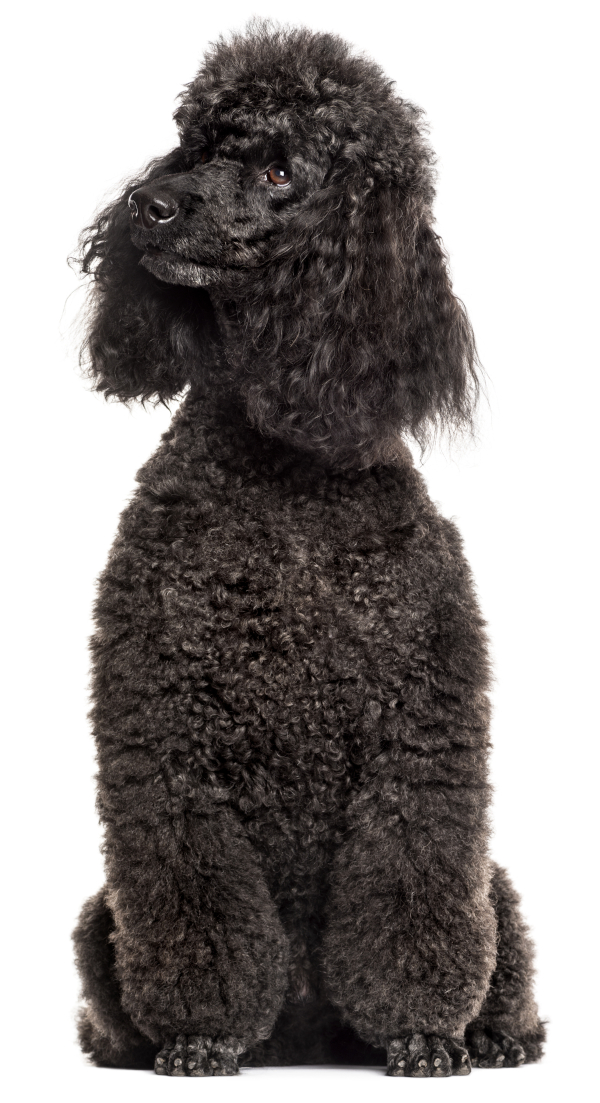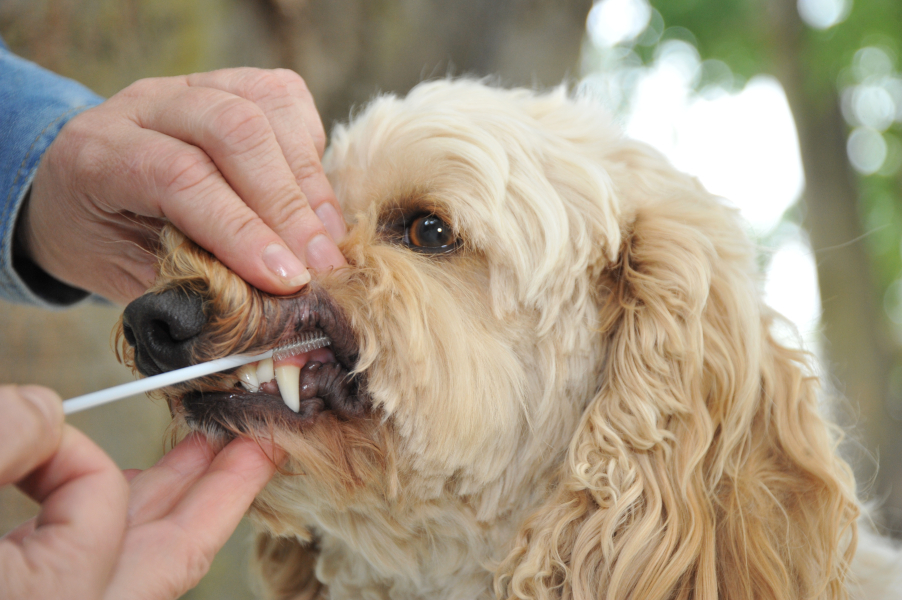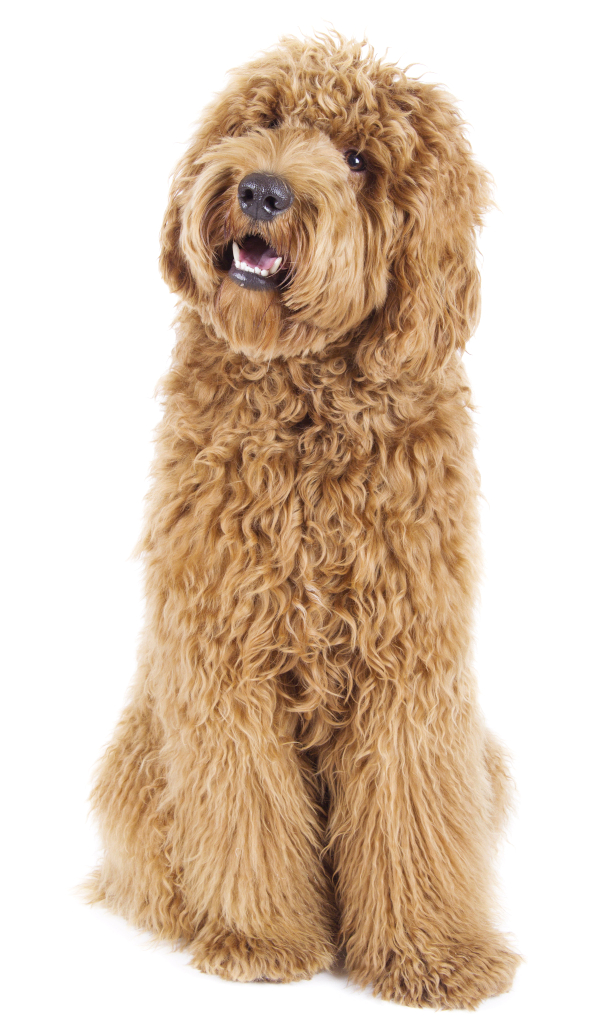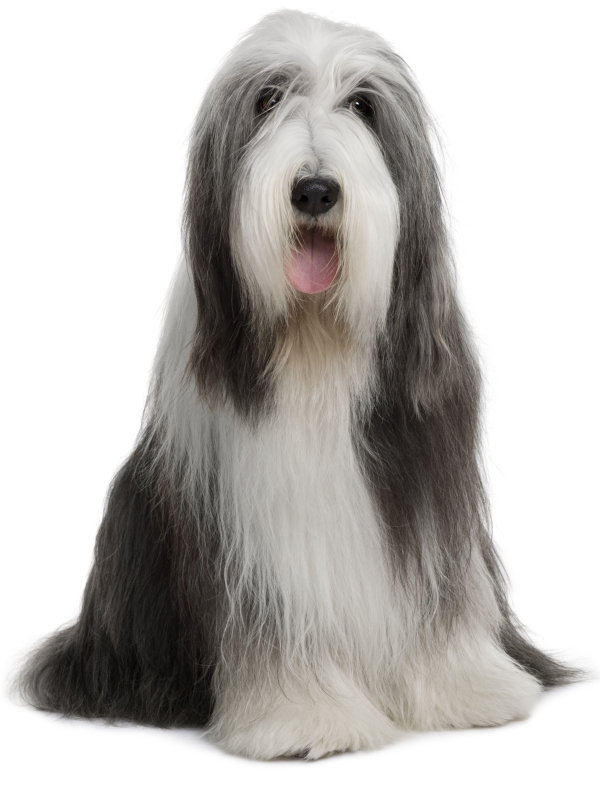Quick Summary

Click here for Price and Turnaround Time
Phenotype: Dogs with one copy of a KRT71 curl allele (C1 or C2) have wavy coats, and dogs with two copies have curly coats.
Mode of Inheritance: Incomplete dominance
Alleles: N = No curl, C1 = Curl 1, C2 = Curl 2
Breeds appropriate for testing: C1: many breeds including Airedale Terrier, American Water Spaniel, Australian Labradoodle, Bichon Frise, Boykin Spaniel, Chesapeake Bay Retriever, Dachshund, Fox Terrier (Wire-haired), French Bulldog, Goldendoodle, Havanese, Irish Water Spaniel, Kerry Blue Terrier, Kuvasz, Labradoodle, Lagotto Romagnolo, Maltese, Mudi, Poodle, Portuguese Water Dog, Schapendoes, Soft Coated Wheaten Terrier, Welsh Terrier, and Crossbreeds
C2: American Water Spaniel, Curly Coated Retriever, Chesapeake Bay Retriever, Bichon Frise, French Bulldog, Irish Terrier, Lagotto Romagnolo, Mudi and Spanish Water Dog.
Explanation of Results:
- Dogs with N/N genotype are expected to have a straight coat. They cannot transmit these curl alleles to their offspring.
- Dogs with N/C1 or N/C2 genotypes are expected to have a wavy coat. They may transmit the curl allele to 50% of their offspring. Matings between two dogs with one copy of any curl allele (N/C1 or N/C2) are expected to produce 50% puppies with wavy hair and 25% puppies with curly hair.
- Dogs with C1/C1, C1/C2 or C2/C2 genotypes are expected to have a curly coat. They will transmit a curl allele to all of their offspring.
Dog Coat Color and Type - Havanese Panel
$115 per animal
Additional coat colors $15 per test
Sample Collection
Dog DNA tests are carried out using cells brushed from your dog's cheeks and gums. The preferred cytology brushes are sent to you by mail, or you may provide your own brushes. For accepted alternative brushes, click here
We recommend waiting until puppies are at least three weeks old before testing.

Step-By-Step:
- Make sure the dog has not had anything to eat or drink for at least 1 hour prior to collecting sample.
- When swabbing puppies, isolate each puppy from the mother, littermates and any shared toys for 1 hour prior to swabbing. Puppies should not have nursed or eaten for 1 hour prior to collecting sample.
- If collecting samples from more than one dog, make sure to sample one dog at a time and wash your hands before swabbing another dog.
- Label brush sleeve with name or ID of dog to be sampled.
- Open brush sleeve by arrow and remove one brush by its handle.
- Place bristle head between the dog’s gums and cheek and press lightly on the outside of the cheek while rubbing or rotating the brush back and forth for 15 seconds.
- Wave the brush in the air for 20 seconds to air dry.
- Insert brush back into sleeve.
- Repeat steps 5 - 8 for each unused brush in sleeve on a fresh area of cheek and gums. Make sure to use and return all brushes sent by the VGL. In most cases, it will be 3 brushes per dog. If using interdental gum brushes, please note that the VGL requires 4 brushes per dog and only moderate or wide interdental gum brushes are accepted.
- Do not seal brushes in sleeve.
- Place all samples in an envelope and return to the address provided.
ATTENTION:
- Do not collect saliva/drool – the key to obtaining a good sample is getting cheek cells on the swab
- Do not rub swab on the dog’s tongue or teeth – this will result in poor quality sample
- Do not collect a sample from a puppy that has recently nursed – the mother’s genetic material can rub off on the puppy’s mouth and contaminate the sample

Two variants in the Keratin-71 (KRT71) gene are associated with curly hair in dogs: a missense variant (R151W) referred to as Curl 1(C1), and an indel variant (S422Rfs) referred to as Curl 2 (C2). These alleles are likely inherited as an incomplete dominant trait, which means that dogs with two copies of any of these curl alleles (C1/C1, C1/C2 or C2/C2) have curly coats and dogs with one copy (N/C1 or N/C2) have wavy coats. As of September 2024, the Curl test assays both C1 and C2 alleles.
The C1 allele was originally discovered in the Portuguese Water Dog but is known to be present in multiple dog breeds, including Airedale Terrier, American Water Spaniel, Australian Labradoodle, Bichon Frise, Boykin Spaniel, Chesapeake Bay Retriever, Dachshund, Fox Terrier (Wire-haired), French Bulldog, Goldendoodle, Havanese, Irish Water Spaniel, Kerry Blue Terrier, Kuvasz, Labradoodle, Lagotto Romagnolo, Maltese, Mudi, Poodle, Schapendoes, Soft Coated Wheaten Terrier, Welsh Terrier, and Crossbreeds. However, the C1 allele does not explain all curly coats in dogs.
The C2 allele has been identified in the Curly Coated Retriever, Chesapeake Bay Retriever, Bichon Frise, French Bulldog, Irish Terrier, Lagotto Romagnolo, Spanish Water Dog and American Water Spaniel. Curly Coated Retrievers appear to be fixed for C2, meaning that all dogs tested by researchers were homozygous for C2 (C2/C2). Researchers that discovered C2 did find one Poodle with the C2 allele, although Poodles are expected to be virtually fixed for C1.
Researchers also noted that a small number of dogs with curly coat did not have either C1 or C2, suggesting that other yet unknown curly coat variants exist in dogs.

